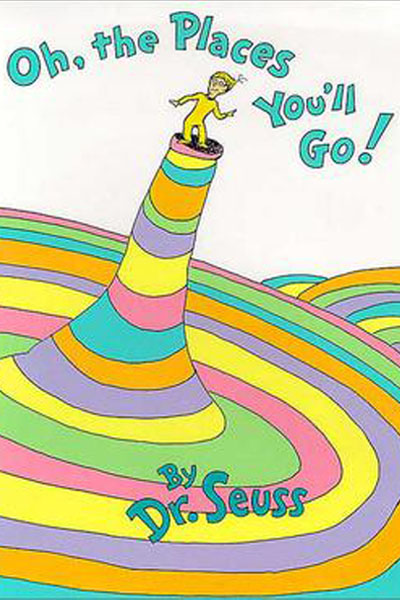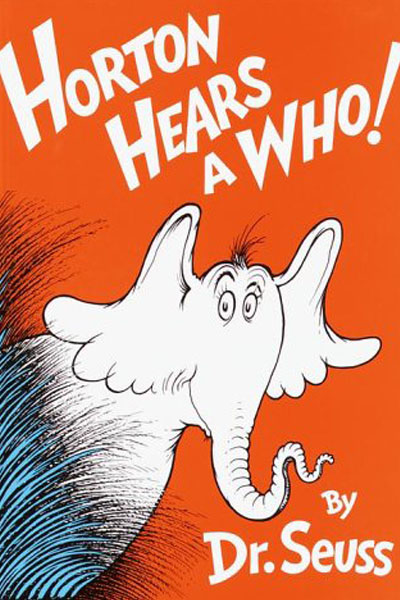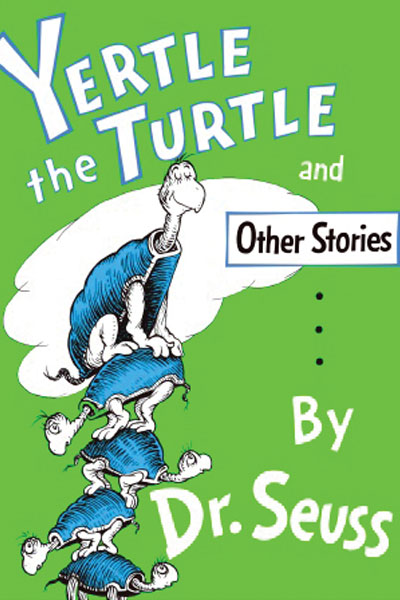Some moral-infused bedtime reads in honor of the 26th anniversary of the author’s death.
Lenten Campaign 2025
This content is free of charge, as are all our articles.
Support us with a donation that is tax-deductible and enable us to continue to reach millions of readers.
Although I do my best to remain impartial when my toddler picks out books for me to read to her, I always do a little happy dance when she chooses something by Dr. Seuss. His are my favorite books to read because I love the rhyme structure of the narration, the silliness, and the unique plotlines. But what I love most is the wisdom that Dr. Seuss often infuses into his content. This past Sunday was the 26th anniversary of his death, and I found myself dwelling on and appreciating his books, mostly because of the lessons they contain that I’m able to pass onto my kids.

Read more:
5 Great bedtime books for Catholic kids
Although Dr. Seuss, whose real name was Theodor Seuss Geisel, wrote many insightful kids books, these three classics strike me as having the most morally significant messages for little ones to learn …

1. Resisting inaction in Oh, The Places You’ll Go
After a former boss of mine read Oh, The Places You’ll Go at a company meeting in order to increase employee motivation, it became my all-time favorite book. In a nutshell, the message is that we’re created to do great things. We will, of course, encounter adversity and have to overcome obstacles that stand in the way of our success and happiness, but in the end, we’re perfectly equipped to do so.
The very best part, though, is when Dr. Seuss warns of “The Waiting Place” in reference to people who lack personal motivation. Instead, they’re sitting back, lazily waiting for things to happen for them.
Some of the things Dr. Seuss’ Waiting Place people are awaiting include, “[for] the rain to go,” “a Yes or a No,” “Friday night,” “a Better Break,” and “Another Chance.” “Everyone is just waiting,” he writes. It’s so easy to get caught in this rut without even realizing it. The temptation is to simply mosey through life in hopes that prosperity will fall into our laps without us having to take any action. “NO!” Dr. Seuss exclaims. “That’s not for you!”
Determination and motivation are some of the most valuable attributes to build in our children. This book is a powerful way to help them understand the importance of seizing life’s blessings and achieving greatness.

2. Defending the defenseless and the power of every voice in Horton Hears a Who
When Horton the elephant discovers an entire village of tiny beings called Whos on a small speck of dust, he faces a great deal of adversity from others who can’t hear the teeny voices like he can. But Horton is firm in his resolution to protect the Whos because, “… After all / A person’s a person no matter how small.”

Read more:
10 Pro-life messages I found in ‘Hamilton: The Musical’
Even when the dust speck is carried away by a bird, Horton insists, “Please don’t harm all my little folks, who / Have as much right to live as us bigger folks do!”
In the end, with Horton’s help, the Whos collectively use their voices to yell loud enough to convince the rest of the jungle creatures that they do indeed exist. The story, which some have insisted contains a prolife implication, is a powerful reminder of our duty to protect those who cannot protect themselves.
What’s more, it provides an opportunity to teach our kids the power of just one voice to make an enormous difference in the world. In his determination to have his town heard, the Whoville mayor exclaims to one little Who, “We’ve GOT to make noises in greater amounts! So, open your mouth, lad! For every voice counts!” There are few more empowering facts to inform our kids of than their ability, as individuals, to move mountains.

3. Gratitude over greediness in Yertle the Turtle
While the story of Yertle the Turtle contains many powerful lessons, what most prominently stands out to me is the value of choosing to be grateful for what we have instead of being consumed by a desire for more.
The book opens by explaining that the pond which King Yertle ruled over was a wonderful place, lacking in nothing. Dr. Seuss declares, “It was clean. It was neat. The water was warm. There was plenty to eat. The turtles had everything turtles might need. And they were all happy. Quite happy indeed.” However, Yertle decides that his kingdom, which is constituted by whatever area he can see, isn’t big enough. In an effort, then, to expand his viewpoint and therefore his dominion, he orders the turtles to create a taller throne for him by standing on top of each other.
Read more:
Pope Francis and the Satanism of Greed
He enjoys his newly extended domain for awhile but, predictably, his turtle throne comes crashing down. “And today the great Yertle, that marvelous he, is King of the Mud. That is all he can see.” The takeaway is that if only Yertle could have realized how fortunate he already was with his happy little pond, he wouldn’t have gotten greedy and wound up with even less than he started with.
Teaching our kids gratitude in the here and now is a vital virtue. Of course, it’s good for them to be ambitious and aspire for more, but not by using others to further themselves, like Yertle did. As the turtle at the very bottom of Yertle’s turtle stack put it, “I know, up on top you are seeing great sights, but down at the bottom we, too, should have rights.”
Dr. Seuss’ books are fun reads and great discussion starters, especially as kids enter ages of critical thinking. Many of them, like these three, contain multiple different lessons, depending on a reader’s perspective. I’m sure that as my kids get older and their minds expand, they’ll be able to open my eyes to even more values written on Seuss’ pages.








